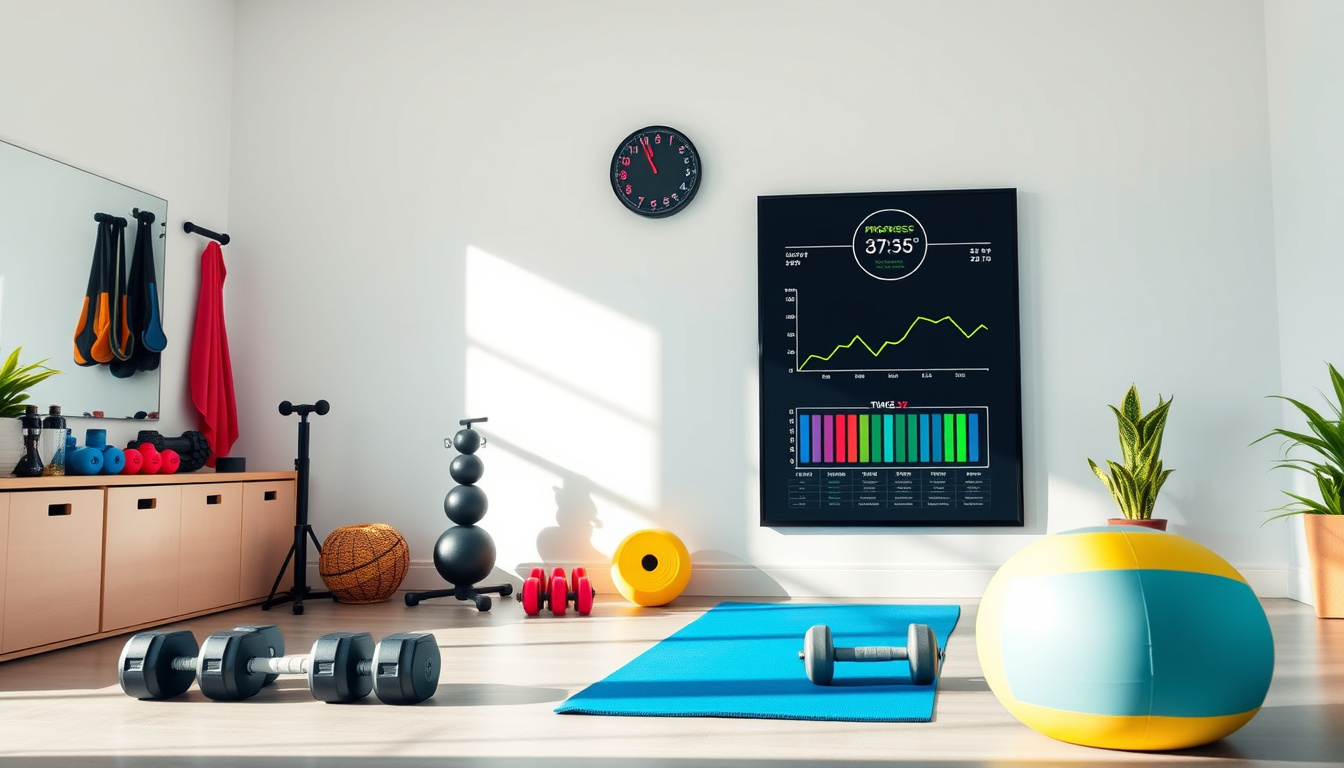In recent years, fitness has changed. Many people now choose home workouts to stay healthy. Whether you love exercise or you are new to it, starting a home fitness challenge can shift your life. To gain true results from this challenge, track your progress by keeping each connection between words short and clear.
Why Track Your Progress?
Tracking your progress in a home fitness challenge gives you many benefits:
- Motivation: You see proof of your hard work when you lift heavier or do more repetitions. Small wins make you want to push harder.
- Accountability: When you record each workout, you remind yourself of your fitness plans. The record helps you stick to a schedule.
- Finding Patterns: With progress tracking, you soon see which exercises work best for you. This lets you adjust your routine while keeping your record close.
- Celebrating Wins: Watching your steps add up lets you recognize small victories. This recognition gives you a boost to keep going.
Methods of Tracking Progress in Your Home Fitness Challenge
There are many ways to track your progress. Below are some common techniques:
1. Fitness Apps
In our digital age, smart apps can track your workouts. Apps like MyFitnessPal, Strava, or Fitbit help you note your activities and monitor daily stats.
2. Workout Journal
If you prefer a simple method, try a workout journal. Write down each day’s exercises and any feelings you have. Over time, you can look back and see your growth.
3. Progress Photos
Progress photos show changes in your body over time. Take these photos with similar light and poses, perhaps every month. Side-by-side images help you see improvements.
4. Measurements
Take body measurements such as waist, hips, chest, and arms. A scale may show weight, but tape measures show real change. Note down each size to track shifts in your body shape.
5. Fitness Assessments
Plan simple tests for strength, endurance, or flexibility. Record how many push-ups, squats, or planks you can do, as well as how long you hold positions. Doing these tests every month shows your progress.
Setting Goals for Your Home Fitness Challenge
Once you know how to track progress, set clear goals. Use a method that makes each goal specific, countable, possible, important, and set in time.
Example of clear goals:
- Specific: "I will add 20 pounds to my squats."
- Measurable: "I record my weights and repetitions each week."
- Achievable: "I add a small weight every two weeks."
- Relevant: "This goal helps build strength."
- Time-bound: "I plan to reach this aim in three months."
Conclusion
Starting a home fitness challenge is more than doing workouts; it is a full process of growth, responsibility, and energy. Tracking your progress plays a key role in this process. By using a mix of smart tools, simple writing methods, and clear goals, you can get the best from your fitness challenge. Get set to move your fitness journey forward—start tracking your progress today!



